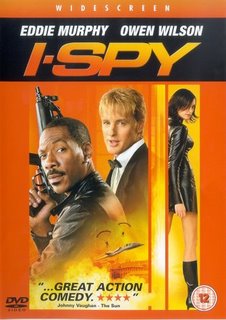
An Open Letter to the Director of Corporate Human Resources, Marcela Perez de Alonso, by the Five French Unions :
Marcela,
Our approach may appear unusual, however if the five Unions present within HP France have agreed to address you directly, it is to invoke a disturbing situation which has generated a lot of emotion amongst HP’s French employees, and which unfortunately has not proved to be solvable through usual consultation and negotiation processes.
The radical changes to the Range Setting which sets employee’s paygrade according to Job Function have lead to the following situation in France:
· Mainstream Population: 73.2% of employees suffer a decrease of 1 to 2 paygrades, whilst only 2.7% increase by one paygrade
· Sales Population: 40.7% of employees suffer a decrease of 1 to 2 paygrades whilst only 3.8% increase by one paygrade
This announcement was received as a shock by French employees, and has been difficult to accept for three reasons:
1 - Loss of confidence in the rating mechanism :
Most people accord importance to the Job and Wage architecture as a way to position their value to HP and career progression. Proceeding with such massive paygrade degradations have provoked feelings of personal devaluation, and has directly lead to the mistrust of the job and rating mechanism. It has disappointed HP employees who saw their efforts rewarded in the wage and earnings system. Consequently these massive degradations are undermining employees’ motivation and morale.
2 - France unfairly affected :
Whilst EMEA as a whole is impacted by a drop in paygrades for an average 20% of the workforce, France is affected to the tune of about 60%. What might appear elsewhere as an adjustment to the system, because of the massive scale of degradations in France it is seen by many as a sanction of French employees.
3 - Lack of transparency :
Prior to this new range setting, French HR had always justified the positioning of pay grades in France as being market-compliant. The explanations for the new mechanism of range setting are presented as: "Market research, revision of the “competitive index”, new policies "on the pay grade ranges”. But neither Union Representatives nor their appointed Experts have received communication of the new market research or how they apply to jobs within HP France. This makes the exercise completely opaque, and it is impossible for us to understand or verify. The underlying logic of a very important change to pay market analysis from one fiscal year to another remains totally incomprehensible, and through lack of justification it cannot be serenely embraced by employees.
Faced with this situation, and on several occasions, the French Unions have invoked the frustration and incomprehension expressed by employees, both to HR France (Pierre-Yves Tilly) and to the France Country Manager (Yves de Talhouët). Pressed by employee meetings at all French sites and petitioned by over 1800 signatures, the unions have asked for:
· A moratorium on the application of the new range settings
· The provision of information needed to gain a detailed understanding of the motivations behind the changes in order to be able to discuss in a concerted manner their adaptation to the HP France population.
HR France appears to have understood our arguments and our discontent, and apparently requested to HR Corporate a moratorium on the implementation. However their response is that this has been refused. However, HP France employees have difficulty assimilating these changes, and do not wish to internalise their loss of confidence and hopes, and their frustration. Since no further progress on this issue seems possible in France, we hereby are informing you of the situation in France and ask you formally for a response to our requests:
· A moratorium on the implementation of the measure
· Access to the detailed information which underlay the changes to the range setting system so that we can openly negotiate their application in France.
Finally, we would also ask you to respond to this open letter by explaining directly to french employees the foundation and the benefits of these changes as well as any clarifications that you consider appropriate to address the unhappiness that the measures have provoked.
Best regards,
The Five French Unions.











 HP-IG Metall December 2006 Newletter
HP-IG Metall December 2006 Newletter